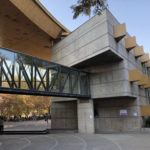Doctoral Program in Education
Doctor in Education
8 semesters
01/08/2025 - 29/08/2025
March 2026
On-Campus
$5.964.000 (annually)
Program Description
The Doctoral Program in Education offers a formative experience, combining theoretical and methodological courses and doctoral supervision with a thesis director. Course length is eight semesters. Upon completing the second year, students formally become Doctoral Candidates and are awarded a Master’s degree in Education Science.
The Program provides doctoral immersion and supervision at the hands of faculty members in an array of disciplines, such as teaching, didactic practices (science, mathematics, history, language, etc.), educational psychology, linguistics, statistics, philosophy of education, history of education, the economy of education, public policies, sociology of education, among others.
Years of Accreditation
- Four years, through April 12, 2021
Program Objectives
To train Doctors of Philosophy in Education, conceived as researchers with a high capacity for reflection, knowledge generation, and evaluation of educational policies and practices, capable of conducting independent research on relevant problems of the academic field rigorously and originally.
Learning Outcomes
By the general and specific objectives of the Program, graduates of the Doctoral Program in Education will be able to:
- Carry out independent research allowing them to generate relevant knowledge for the field of education.
- Understand fundamental problems of the education sector, backed by theories and paradigms provided by various areas of expertise to support the improvement of educational practices and policies.
- Discerningly appropriate new knowledge in education to develop new theoretical-practical proposals relevant to current academic needs.
- Get involved in creating and coordinating research teams, displaying knowledge of research designs, methods, integrity, and ethics.
- Contribute personally to the creative generation, dissemination, and communication of knowledge, through oral and written media such as publications and presentations in scientific events with a diverse audience.
- Add to the current knowledge and understanding of trends, conceptualizations, and theories in a specific field of education.
Research Areas
Ver más keyboard_arrow_downSchool teaching and learningThis area develops research, training and transfer in the following areas: Discipline Literacy (Social Sciences, Language, Experimental Sciences, Mathematics), Discipline Teaching and Learning (Social Sciences, Language, Experimental Sciences, Mathematics), Cross-cutting skills for learning, Classroom interactions and practices, Information and Communication Technologies; Multi-modality, Teaching practices, Innovation and use of technology, and Academic language. |
Teaching and learning in early childhood.This area researches, shapes, and develops transfer in the development and learning of the foundation skills of early childhood (0 to 6 years): initial literacy (reading, writing and mathematics), executive function, self-regulation, and socio-emotional development. It also studies the factors that influence them, such as social interaction, learning environments and effective pedagogical practices. |
Higher educationThis area researches, shapes and develops transfer in the interaction between higher education policies and institutional strategies and actions, from the perspective of access, teaching and learning, program innovation, and organizational structures. |
Teacher training and professional developmentThis area involves research, training, and transfer in the following areas: Professional Know-How, Pedagogical Subject Knowledge, Teaching Assessment, Continuous Teacher Training, Teacher Trainer, Initial Teacher Training, Professional Practice, Reflections and Notions of Teachers, Tutoring and Mentoring. |
Educational Measurement and AssessmentThis area generates knowledge by using several analyses approaches (quantitative, qualitative, and mixed research methods) contributing to decision-making in the educational system. It deals with the development and validation of measurement tools, learning assessment, school processes analysis and assessment, educational programs implementation and impact assessment, among others. |
Foundations and purposes of education.This area conducts research on the foundations and purposes of education, based on understanding the human being inhabiting this world. This intention is expressed from different perspectives intertwined in every educational action, such as the intersubjective dimension of knowledge and the construction of the pedagogical space. Identifying such approaches entails the study of the following: pedagogical authority, the school’s physical and aesthetic environment, the ethical and democratic skills of teachers and students, environmental education as part of civic education, as well as school climate and violence, among others. In short, this area aims to explore questions that account for the applicability and relevance of strategic thinking in education regarding challenges of the 21st century. |
Policies, equity and differences in education, leadership, and school improvementThis area consists of research development, training, and transfer with two focal points. The first one focuses on the influence of the political context, the design of public policies, and school organizations in educational quality and equity, with a particular emphasis on improvement processes and leadership impact on the various school system levels. The second one focuses on contemporary theories of inclusive education, which seek to go beyond traditional sectorization of work related to school differences, and the various identity markers (gender/sexuality, race/ethnicity, social class, age, ability, etc.). |
Application Requirements
Ver más keyboard_arrow_down
|
Graduation Requirements
Ver más keyboard_arrow_down
In addition, in order to obtain the doctoral degree, students must:
In addition to the academic requirements mentioned above, at the time of applying for the degree of Doctoral program in Education, students must not be registered as a debtor of any kind with the University, must have formally submitted the corresponding copies of the final document of the doctoral thesis, including the modifications requested by the Doctoral Thesis Committee, and must have deposited them in the UC Repository in accordance with the instructions established by the UC Library System (SIBUC). |
Unidades académicas

Faculty of Education
